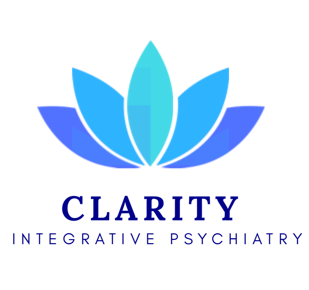What is Concierge Psychiatry?
A model of mental health care that goes hand in hand with holistic psychiatry and membership-based care.
Concierge psychiatry is a higher level of care that provides patients with more personalized and accessible services for a fee, typically through a membership or retainer. This approach allows psychiatrists to limit their patient load, enabling them to spend more time on individual care and treatment.
Key features of concierge psychiatry include:
Increased Accessibility: Patients often have easier access to their psychiatrist, which may include same-day appointments, same-day day, responses, or availability outside of regular office hours.
Extended Appointments: Sessions tend to be longer than standard visits, allowing for more comprehensive discussions and careful consideration of treatment options as well as continued evaluation and adjustment of care plans.
Personalized Care: The model often focuses on individualized treatment plans considering each patient's unique needs and circumstances.
Continuity of Care: Patients typically see the same psychiatrist for treatment, fostering a stronger therapeutic relationship and more consistent care.
Holistic Approach: Many psychiatrists who adopt this model take into account not just the mental health issues but also physical health, lifestyle factors, and social circumstances that affect a patient's overall well-being.
Collaborative Care: There is often a strong emphasis on teamwork, with psychiatrists coordinating with other healthcare providers, such as primary care physicians, therapists, and support staff, to create a more integrated approach to treatment.
Proactive Follow-Up: Patients may receive proactive follow-up communications, including check-ins via phone or messaging, which help ensure they are adhering to their treatment plans and feeling supported.
Education and Empowerment: Patients are typically encouraged to learn more about their conditions and treatment options, fostering a sense of ownership over their mental health journey and empowering them to make informed decisions.
Flexible Treatment Options: Psychiatrists often provide various treatment modalities, including medication management, therapy, and lifestyle interventions, tailored to fit the patient's preferences and needs.
Focus on Prevention: There is a shift toward preventive care, where the emphasis is placed not only on treating symptoms but also on preventing the exacerbation of mental health issues through early intervention and support.
This method seeks to significantly enhance the overall mental health care experience by addressing the inherent limitations often found in traditional psychiatry. These limitations include the challenges of managing high patient volumes, which can lead to rushed appointments that do not allow sufficient time for in-depth discussions. Furthermore, the restricted assessment procedures commonly practiced can hinder a comprehensive understanding of patients' needs. By focusing on these critical areas, the approach aims to create a more supportive and effective environment for individuals seeking mental health care, ultimately leading to better treatment outcomes and improved patient satisfaction.
Are you ready for some Clarity? Contact us to learn more.
If you are experiencing a mental health crisis, contact 911 or text the Suicide and Crisis Hotline at 988.

